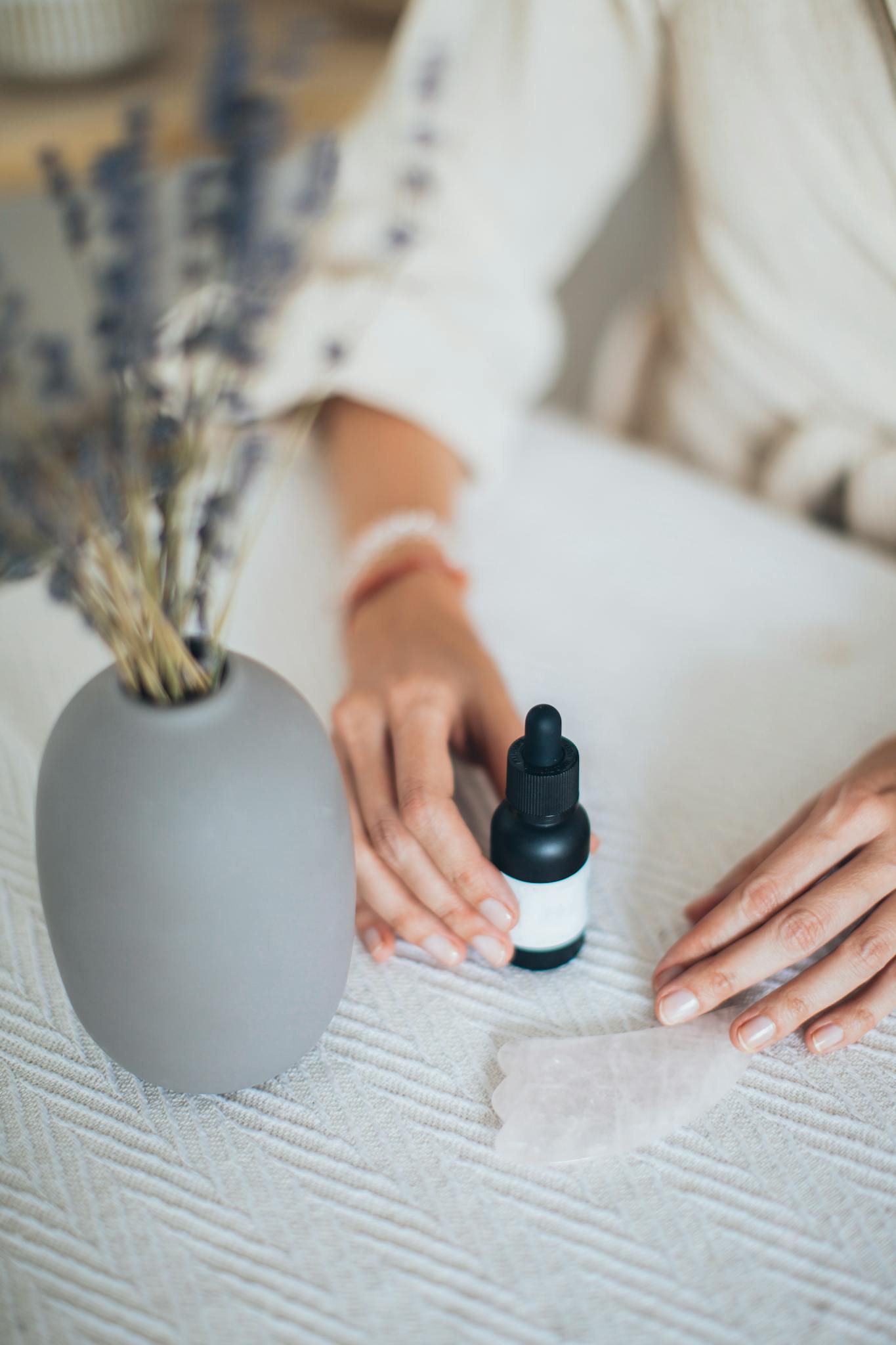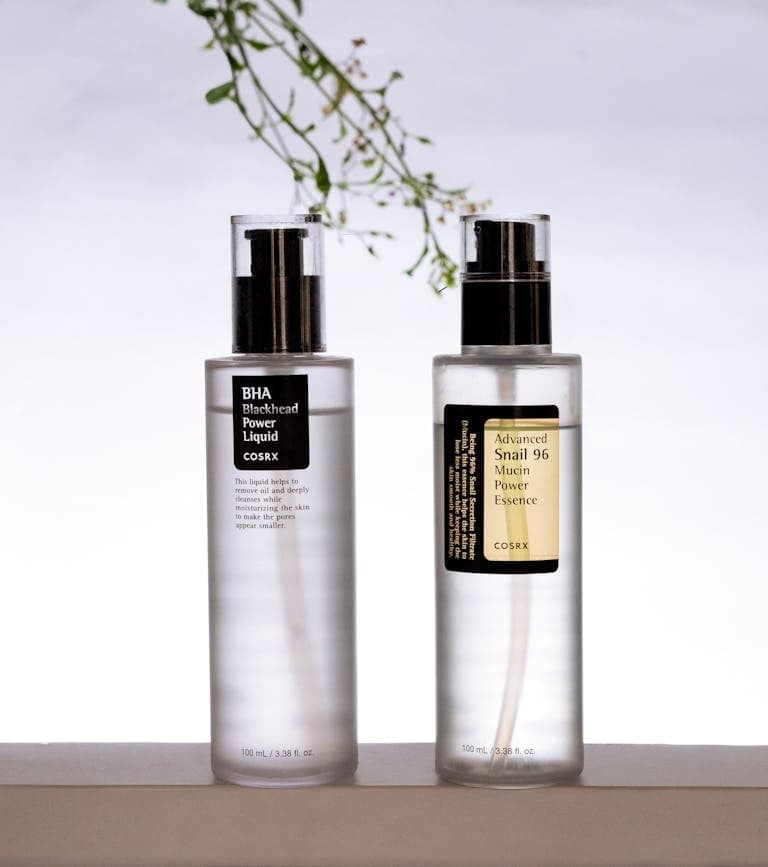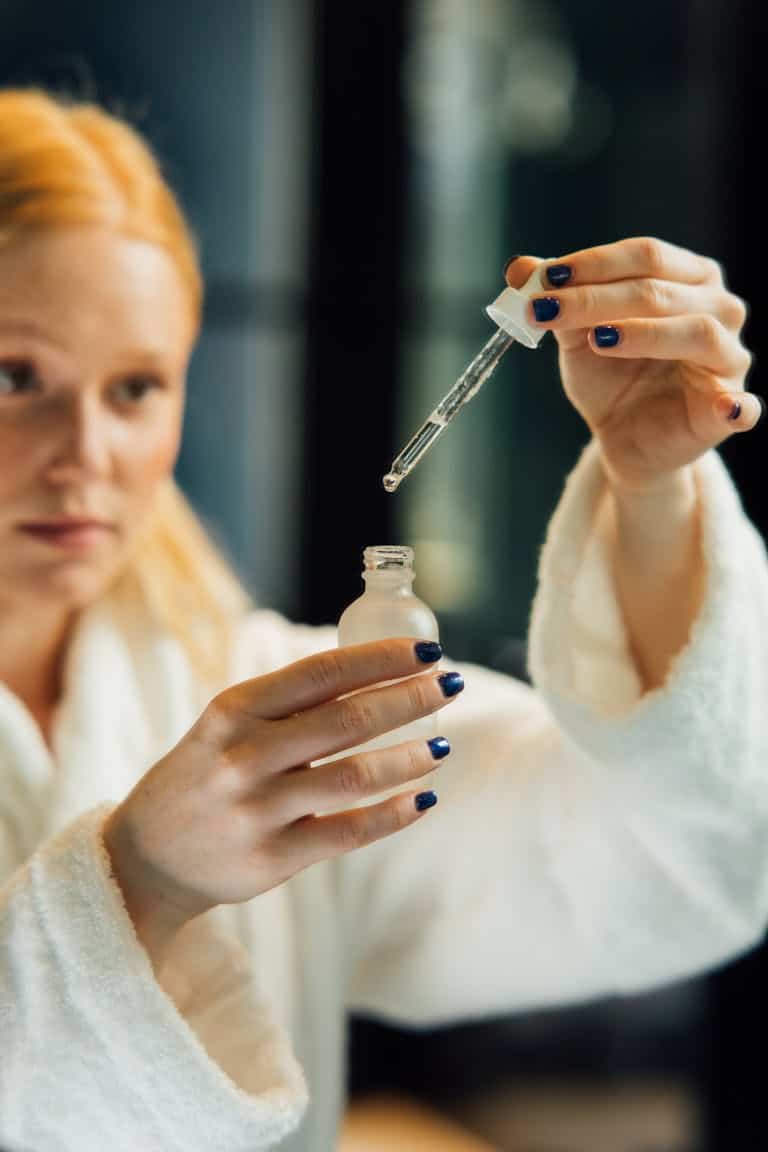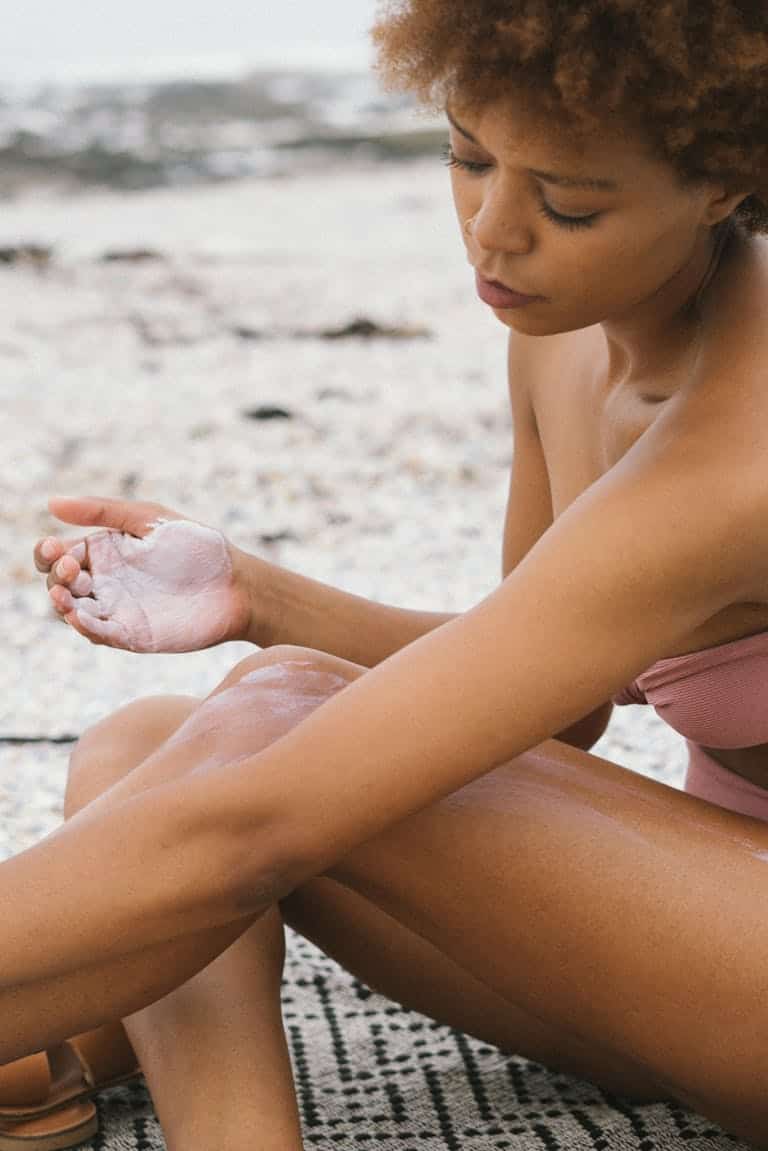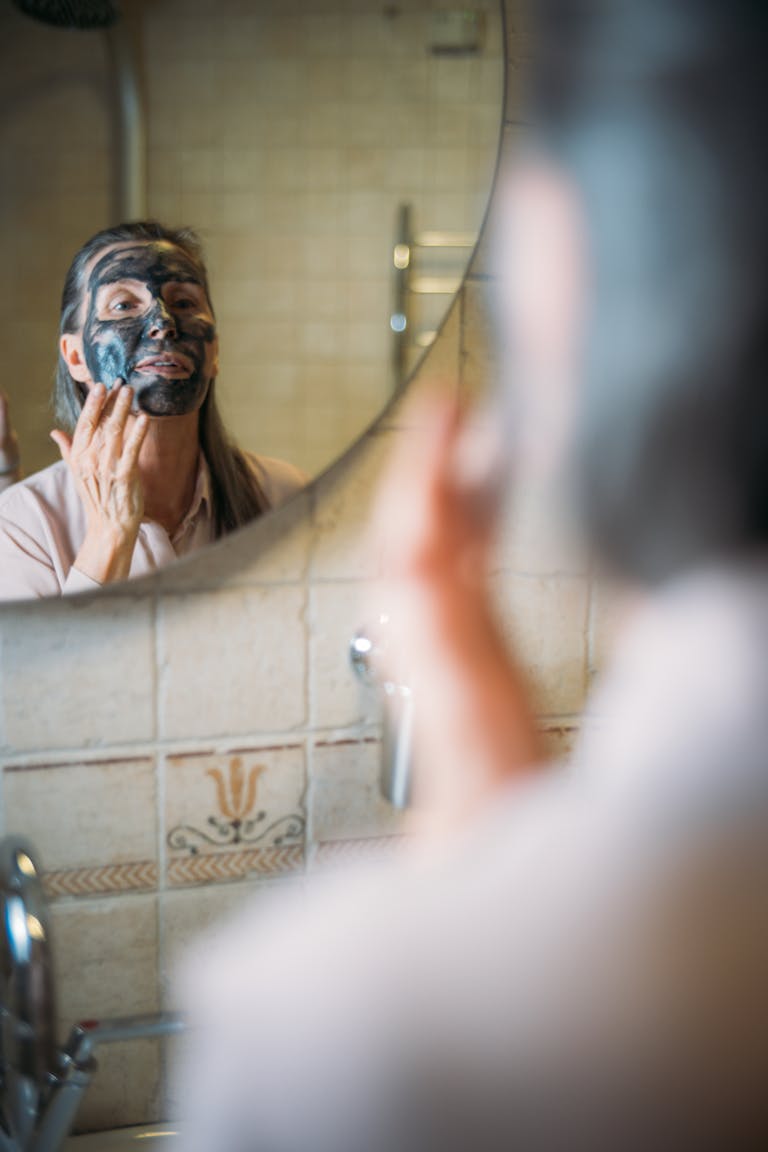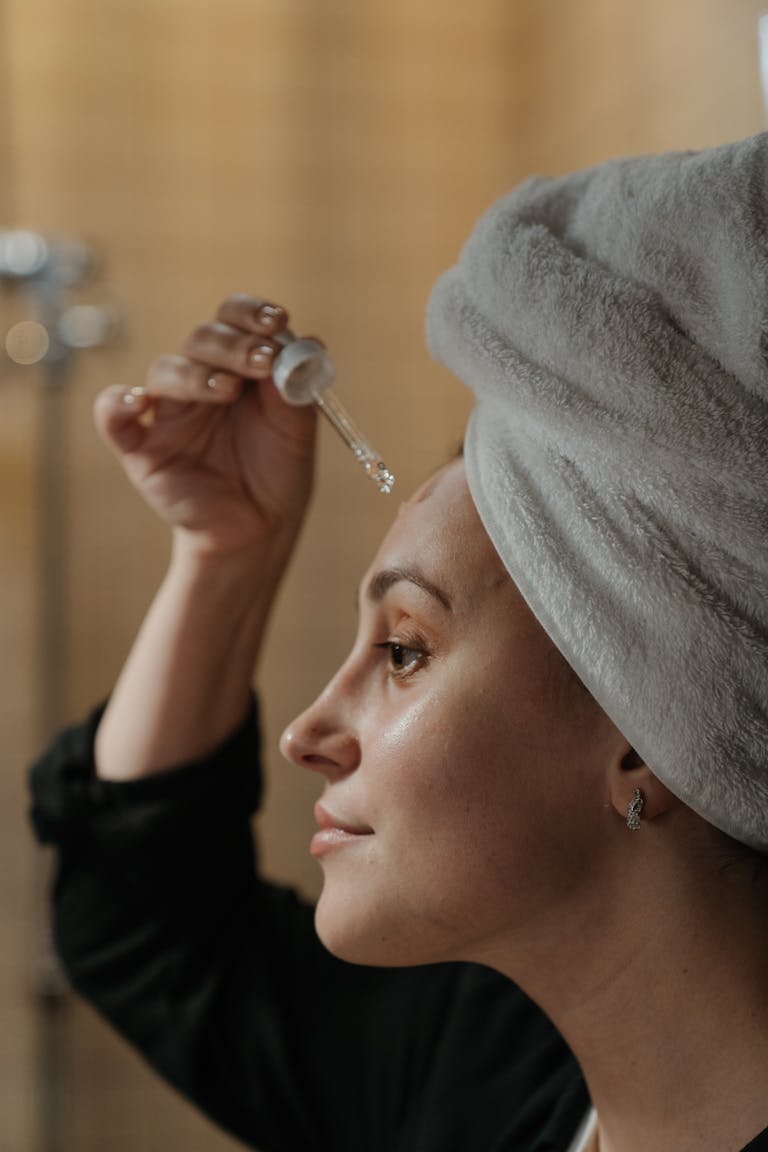Best Natural Moisturizers for Dry, Hormonal Skin in Perimenopause
Finding the right natural moisturizer for perimenopausal skin can feel frustrating—what once worked may now leave your face dry, tight, or reactive.
If you’ve been searching for the best moisturizer for dry, hormonal skin and coming up short, you’re not alone. Let’s break down what’s actually happening to your skin—and what to look for in a moisturizer that supports it naturally.
As estrogen levels drop during perimenopause, your skin doesn’t just feel different—it is different. What used to work in your 30s might now leave your skin tight, flaky, or oddly reactive. This shift often comes as a surprise, but it’s one of the most common skin concerns women face during this transitional time.
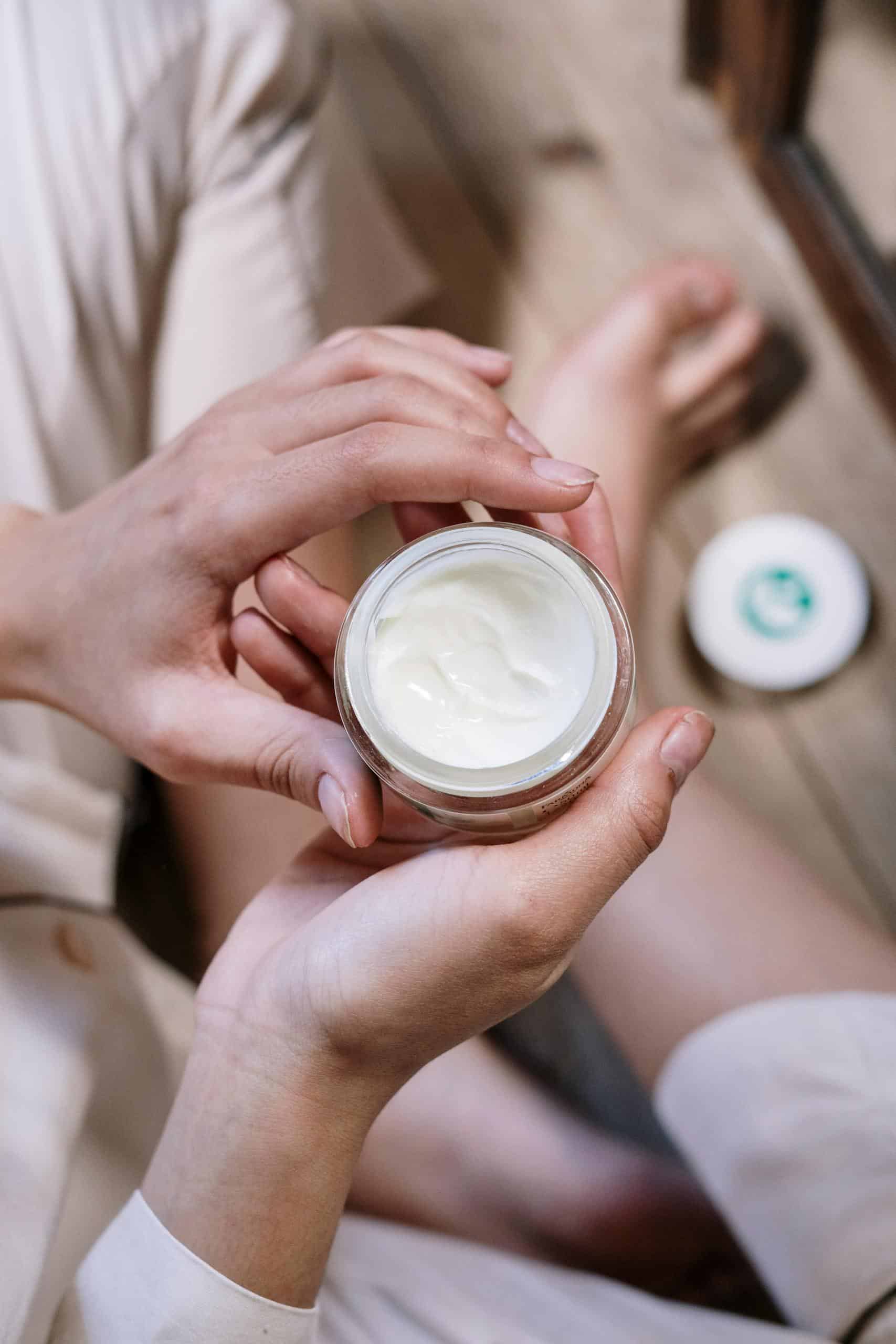
Why Perimenopausal Skin Gets So Dry
Hormonal changes in perimenopause slow down oil production, thin the skin barrier, and reduce collagen synthesis. That leads to more moisture loss and less elasticity. The result? Skin that feels parched, dull, and rough—especially on the cheeks, jawline, and neck.
On top of that, skin can become more sensitive and prone to redness. The ingredients you once loved might suddenly sting or sit awkwardly on the surface. What your skin needs now is deep hydration, barrier repair, and inflammation control—without harsh chemicals or hormone-disrupting ingredients.
Best Natural Moisturizer for Perimenopausal Skin: What to Look For
The best moisturizers for hormonal skin combine nourishing botanicals with clinically backed actives. Here’s what to prioritize:
Ceramides and fatty acids
These help rebuild the lipid barrier and lock in moisture. Look for ingredients like shea butter, squalane, and evening primrose oil.
Humectants like glycerin and hyaluronic acid
These draw water into the skin to plump and hydrate.
Anti-inflammatory botanicals
Soothing plant extracts like calendula, oat, and Centella asiatica can reduce reactivity and calm redness.
Antioxidants
Vitamin C, green tea, and resveratrol help defend against oxidative stress and environmental aging.
No synthetic fragrance or endocrine disruptors
Fragrance can be a hidden irritant, and certain preservatives may interfere with hormones. Clean, low-irritant formulas are ideal.
Best Natural Moisturizers for Perimenopausal Skin
These standout moisturizers are loved by both experts and users, earning consistently high reviews for effectiveness, feel, and clean formulations.
OSEA Atmosphere Protection Cream
This lightweight but deeply hydrating moisturizer uses organic algae, shea butter, and macadamia oil to restore suppleness without clogging pores. Especially good for sensitive, combination, or acne-prone skin during hormonal shifts.
Avène Hydrance Rich Hydrating Cream
Made with Avène’s soothing thermal spring water and gentle emollients, this rich cream nourishes dry, sensitive skin without heaviness. It’s especially effective in cold or dry climates.
Paula’s Choice Omega+ Complex Moisturizer
Loaded with omega-rich oils from chia, flaxseed, and passionfruit, this barrier-repairing moisturizer restores glow and resilience to dry, depleted skin. It’s also fragrance-free and non-irritating.
Neal’s Yard Remedies Frankincense Intense™ Hydrating Cream
Formulated with sustainably sourced frankincense, plant stem cells, and hyaluronic acid, this luxurious cream targets dryness, fine lines, and loss of tone—all without synthetic fragrance.
La Roche-Posay Toleriane Ultra Night Moisturizer
This minimalist, dermatologist-recommended formula hydrates deeply with shea butter and glycerin, while calming ingredients like thermal spring water help reduce reactivity. Perfect for redness-prone or newly sensitive skin.
What About Facial Oils?
If your skin still feels dry after moisturizing, you may benefit from layering a facial oil on top at night. Look for oils rich in linoleic acid—such as rosehip, evening primrose, or jojoba. These nourish and soften the skin barrier without feeling heavy or greasy. For best results, apply after moisturizer to seal in hydration.
Final Thoughts
Perimenopausal skin doesn’t need a 12-step routine—it needs support, hydration, and ingredients that work with your body’s changing rhythms. The right moisturizer can make a noticeable difference in how your skin looks and feels, and more importantly, how you feel in your skin.
This season of life asks you to listen more closely to your body. Skincare can be part of that listening—grounded, intentional, and nourishing in all the right ways.
